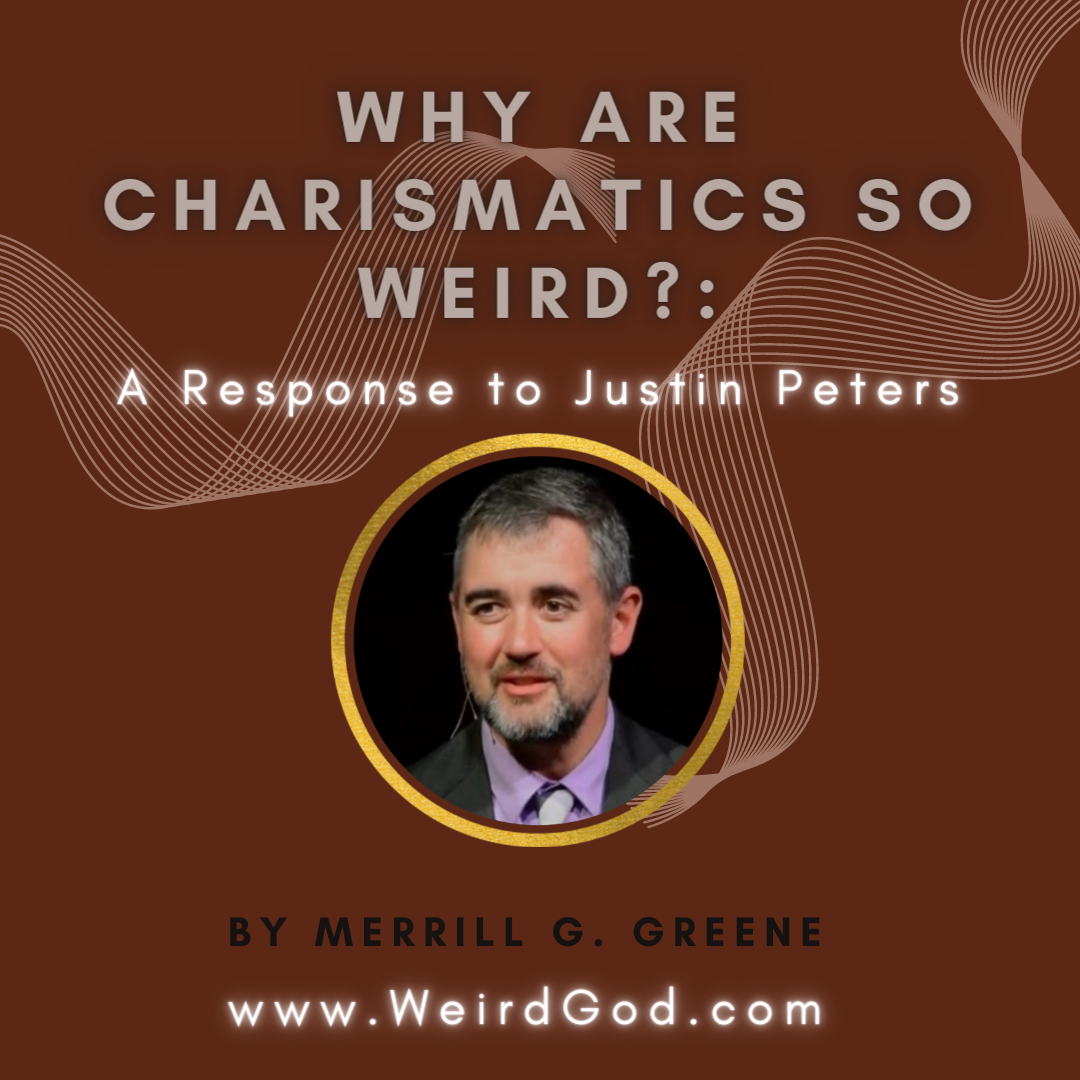

Crazy Canticles: Spontaneous Worship and the Prophetic use of Music in the Bible and Contemporary Church
“Spontaneous worship is often used for meditative purposes in a Charismatic practice known as “soaking,” in which Christians attempt to seek God’s presence and to foster the prophetic. Criticisms are sometimes lobbied against this spiritual discipline, with the most common being that it seems emotionally manipulative….”

Theological Gaslighting: Christian Sectarianism and Special Knowledge
“…Theological gaslighting can involve persistent contrariness during doctrinal discourse in which a person is perpetually told they simply “do not understand” the opposing opinion, despite directly quoting or referencing source material on the topic at hand. While such disagreements and conversations can be beneficial, ignoring the very real sectarianism and schismatic impulses of this phenomenon is dangerous. Indeed, Christians often are segregated by denominationalism and tribalism due to tertiary theological perspectives and, in some contexts, these theological households act almost as fraternities or sororities in which outsiders are considered “less enlightened” than those members of the in-group. This “special knowledge” that those in the know are privy to gives a sense of social cohesion and unity while simultaneously involving mental gymnastics and exegetical loopholes to maintain the framework.”

Personal Incredulity and The Spirit: Why Experience Matters in Discernment
Have you ever been in an argument with someone about an interpretation of Scripture or a miraculous claim only to be greeted with any of these counterpoints:
“That seems farfetched to me.”
“I’m not convinced.”
“I’ve never heard that before.”
These are examples of a logical fallacy known as “personal incredulity.” Personal incredulity is an a priori judgment on the inherent value of an argument or position based on what seems rational to one’s own sensibilities. In the context of interpreting the Bible, personal incredulity can be as obvious as one disagreeing with certain practices because they’ve seen abuse in the Church or claiming that no “reputable” or “meaningful” scholar could agree with the argument you are presenting.

Missing the Mark on the Miraculous: Why Charismatic Phenomena are a Missed Opportunity for Apologetics
“Christians who are immersed in the Charismatic Renewal profess to experience God not only in the intellect and heart, but also in tangible, observable ways. Like the early Christians, they recognize that the Kingdom of God announced by Jesus was not only proclaimed but also demonstrated. Thus, just as the first disciples had their message of the Gospel confirmed by “signs and wonders and various miracles and by gifts of the Holy Spirit” (Heb. 2:4), Charismatic Christians—at least in theory—preach the message of Jesus alongside the confirmatory signs of prophecy, healings, and deliverance from demons…”

Gold Teeth: Transmutation Miracles in the Bible and Modern Charismatic Movement
“God gave us gold teeth.”
This line can be heard in Darren Wilson’s 2007 documentary Finger of God, which opens with a scene of the filmmaker’s own aunt and uncle showcasing their shiny new chompers. In 1999, more than 300 Christians at Toronto Airport Christian Fellowship (TACF; now known as Catch the Fire) claimed to supernaturally receive gold teeth. This garnered media attention and TACF produced a video called “Go for the Gold,” where many attendees were on camera with mouths wide open…

The Misuse of Self-Control: Charismatic Expression and Exegetical Fallacies
“The most common passage used as a proof-text against spontaneous physical movements supposedly brought on by the Holy Spirit is Galatians 5:22-23: “the fruit of the Spirit is love, joy, peace, patience, kindness, generosity, faithfulness, gentleness, and self-control.” Based on this passage and others like it, critics of these Charismatic experiences conclude the Spirit would not cause someone to act in a way that appears incoherent or ecstatic.
Yet, is this what Paul was addressing?”

“As It Is Written”: Using Theology as a Scapegoat for Unbelief
According to a 2016 article in the Journal of Religion and Health, some 87.4% of American adults have prayed for divine healing, either for themselves or others, and about a quarter of those practiced the biblical command of “laying hands” on the sick (James 5:14).
While some doubt the efficacy of prayer in healing the sick, others suggest that it is purely psychosomatic, or that, if it does happen, it is considerably rare. Depending on where you live or what circles of Christianity you are a part of (among other factors) it may be that you have not known of anyone who has been healed through prayer.
Yet, healing is not as uncommon as some think…

Miracle & Magic: Money, Ministry, and Missionaries
Magic is everywhere. In fact, the demand for magic is high.
According to one source, between 2016 and 2021, revenue for the psychic industry totaled $2.2 billion with “a projected 2.6% growth in 2021 alone.” A quick search on the popular website Fiverr reveals that ordering various spells, curses, and counter-curses is just a click away (and ranges in cost from $20- $6500)!
It is not only magic, however, that has been marketed. Exorcism too has been monetized…

“Why Are Charismatics So Weird?”: A Response to Justin Peters
Justin Peters is a popular reformed (Calvinist) Christian speaker and author who is well known for his discernment ministry Justin Peters Ministries. Peters self-identifies as a Cessationist (meaning he believes certain gifts of the Holy Spirit ceased after the apostles died). His video series Clouds Without Waters, for example, is a criticism of the modern Charismatic movement.
Most recently, Peters has created a podcast entitled Why Are Charismatics So Weird?.

Why Weird?
When I started the journey of writing my first book, The Weirdness of God, I was hesitant to use the word weird in the title. I certainly did not think God was weird – or at least that’s what I told myself…